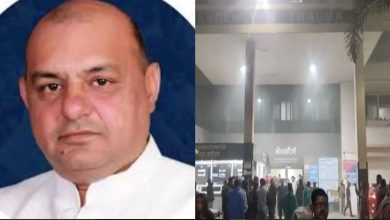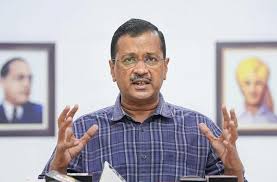40 years on: Bhopal gas tragedy survivors demand justice from Donald Trump
 Bhopal: Four decades after the 1984 Bhopal gas tragedy, the world’s deadliest industrial disaster, survivors continue to endure unimaginable suffering, their calls for justice still unanswered.
Bhopal: Four decades after the 1984 Bhopal gas tragedy, the world’s deadliest industrial disaster, survivors continue to endure unimaginable suffering, their calls for justice still unanswered.
According to Kashmir Media Service, on the 40th anniversary of the catastrophe, four NGOs leading the fight for justice organized a rally to the abandoned Union Carbide factory on the outskirts of Bhopal in central India, carrying an effigy of “corporate crime.” The victims, marching through the streets, denounced local, national, and international leaders for their role in perpetuating the denial of justice and dignity to survivors. Despite enduring decades of hardship, many still drink water contaminated by Union Carbide’s toxic waste.
As part of the commemoration, Bhopal gas survivor organizations held a torch rally to honor the victims and raise awareness. Rashida Bee, President of the Bhopal Gas Peedit Mahila Stationery Karmachari Sangh, sharply criticized U.S. Presidents from Ronald Reagan to Barack Obama for shielding Union Carbide and Dow Chemical from accountability. Bee appealed directly to President-elect Donald Trump, urging him to end the long-standing injustice and hold the companies responsible, invoking Theodore Roosevelt’s Square Deal to regulate corrupt corporations.
Nawab Khan, leader of the Bhopal Gas Peedit Mahila Purush Sangharsh Morcha, condemned the apathy of international organizations. He pointed out that had the disaster been caused by natural forces, agencies like the World Health Organization would have provided long-term support, but instead, the victims are treated as “expendable.”
Balkrishna Namdev, a 71-year-old social activist, spoke with unwavering conviction, highlighting the corporate disregard for human life and the environment. “Corporations prioritize profit over people and the planet. With their wealth, they buy governments and silence opposition, while people continue to suffer,” Namdev said.
The disaster, which occurred on the night of December 2-3, 1984, when methyl isocyanate (MIC) gas leaked from the Union Carbide India Limited (UCIL) pesticide plant plant, remains one of the deadliest industrial accidents in history. Thousands died immediately, and countless others perished in the years that followed due to the long-term health effects. Bhopal has since been called a “health holocaust.”
Today, the site still holds 337 tonnes of toxic waste, which has contaminated the surrounding soil and groundwater. Despite repeated calls for action, the toxic legacy remains untouched. The 40th-anniversary events, which began on November 15, 2024, serve as painful reminders that justice remains elusive, the suffering continues, and the environmental disaster endures. For survivors and advocacy groups, Bhopal is not just a tragedy of the past, but an ongoing corporate crime.








